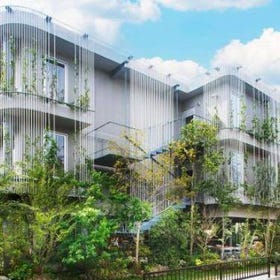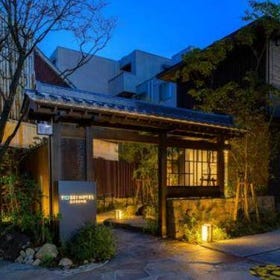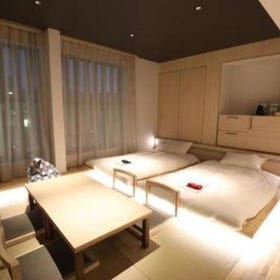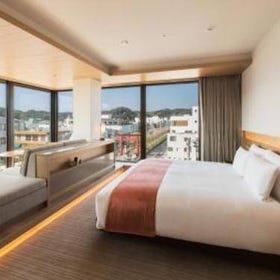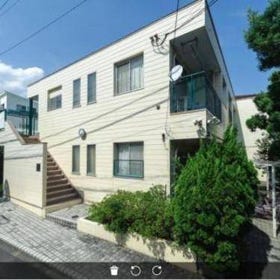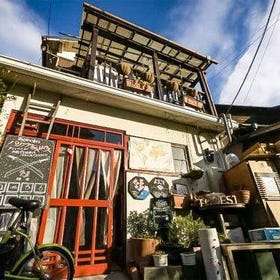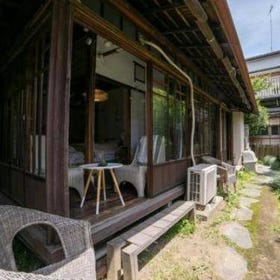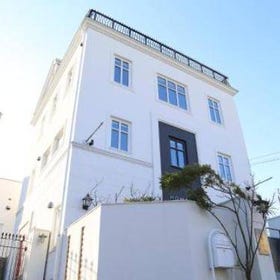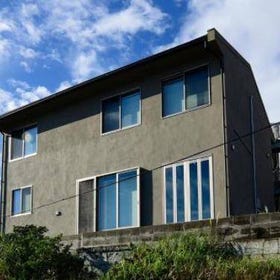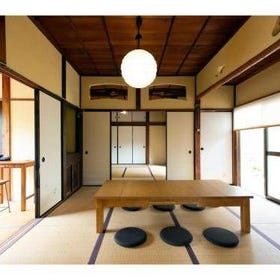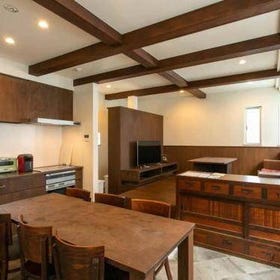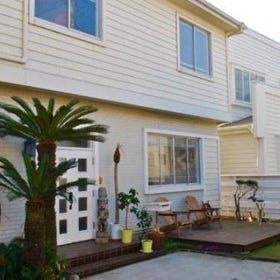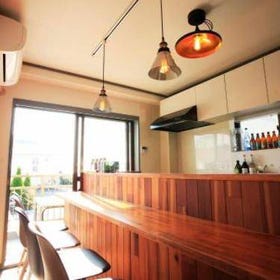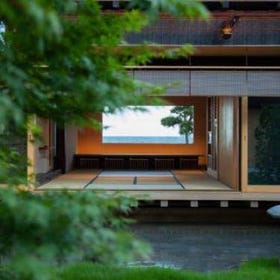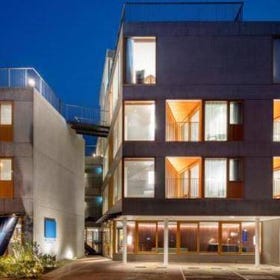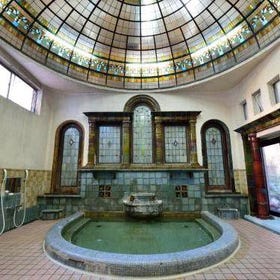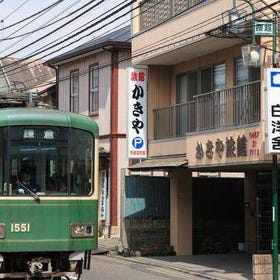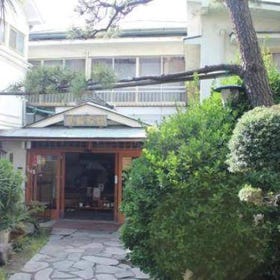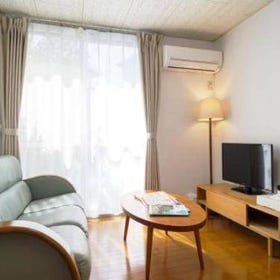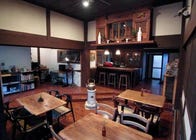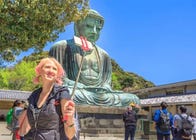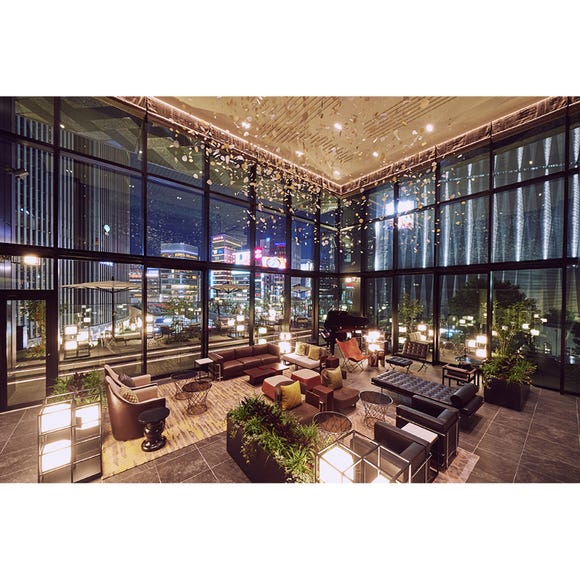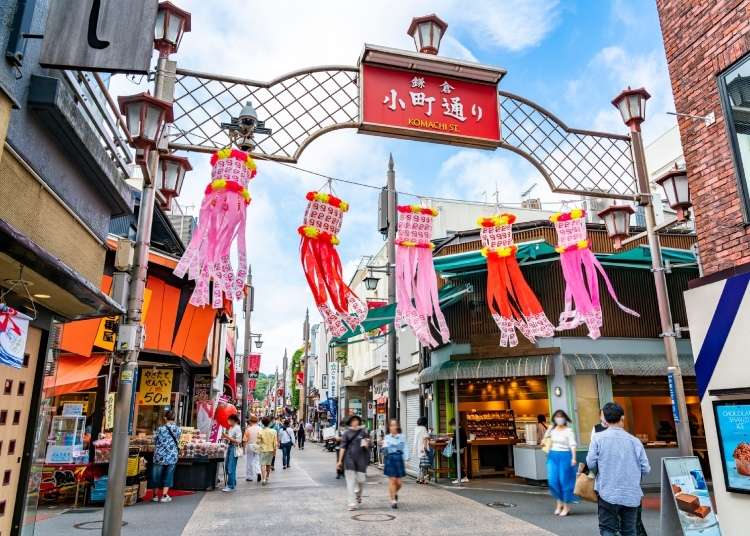
Looking for the perfect place to stay in Kamakura? This charming coastal town in the Kanto area of Japan is often referred to as "The Kyoto of Eastern Japan" due to its rich history and numerous attractions. From ancient shrines to picturesque beaches, Kamakura has something to offer every visitor.
But with so much to see and do, it can be overwhelming to plan your itinerary and choose the right accommodation. That's where we come in! In this guide, we'll explore the best areas to set up base and highlight 15 top-rated Kamakura hotels to help make your stay unforgettable.
Main image: PIXTA
What is Kamakura all about?
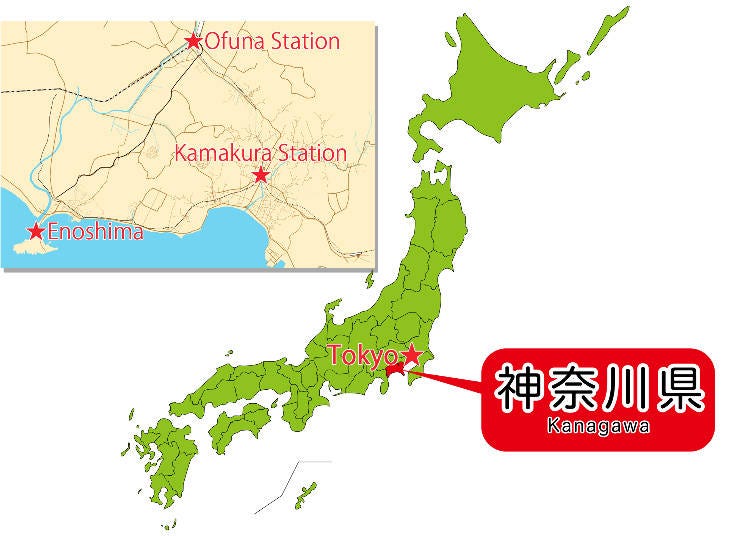
Nestled between the mountains and the sea, Kamakura is a charming coastal town that served as the political center of Japan during the Kamakura Period (1185-1333).
Today, Kamakura is a popular destination for visitors who come to admire the town's rich history, scenic beauty, and cultural landmarks, such as the Great Buddha statue, Tsurugaoka Hachimangu Shrine, and numerous temples and shrines. With its relaxed atmosphere, delightful shops and restaurants, and proximity to the beach, Kamakura offers a unique and memorable experience for all travelers.
Why should you stay in Kamakura?
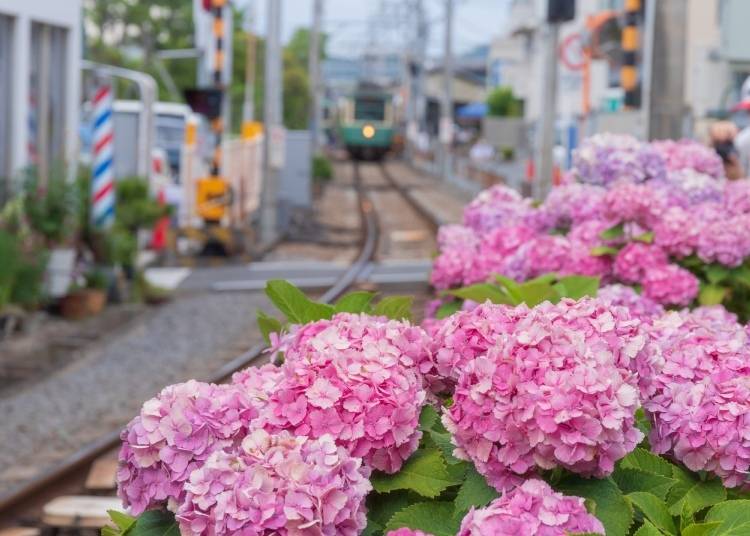
With its relaxed pace of life and friendly locals, Kamakura offers a peaceful and calming atmosphere that's perfect for those looking to escape the hustle and bustle of Tokyo.
While Kamakura is a well-known day trip destination from Tokyo, it's also popular for weekend getaways and overnights. This will give you enough time to explore the town's hidden gems, such as the quaint shopping streets and lesser-known temples, as well as enjoy some of the town's outdoor activities, like hiking, beach-going, or diving into local cuisine.
Key points to selecting your hotel in Kamakura
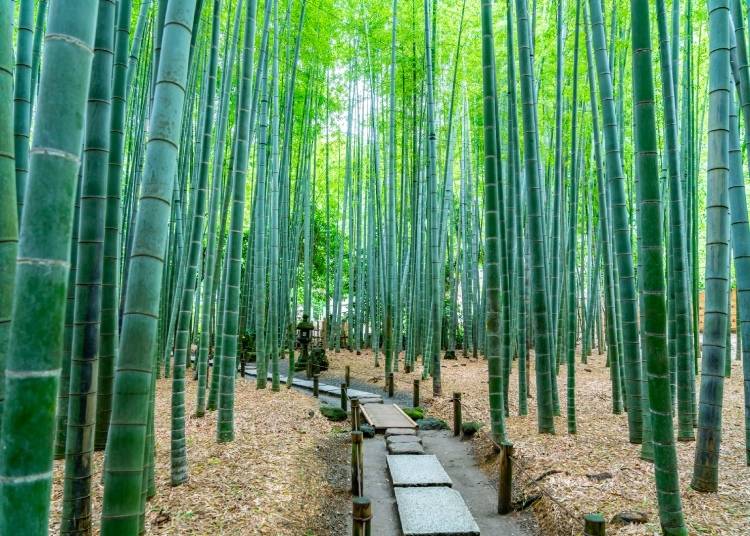
Room type and layout
When it comes to choosing a room in Kamakura hotels, it's important to consider the type and layout that best suits your needs.
- Kamakura offers a variety of accommodation options, including traditional Japanese hotels (ryokan), western-style hotels, and full rentals.
- If you opt for a ryokan, keep in mind that the layout may differ from what you're used to. Floors are often tatami, and sleeping arrangements may be futon-style rather than raised beds.
- If you're looking for a Japanese-style onsen bath, you may have better luck with a ryokan than a Western-style hotel. Be sure to check the amenities offered before booking.
Location, environment, and style
When selecting a hotel in Kamakura, it's important to consider the location, environment, and style that best fit your preferences.
- Hotels in Kamakura are typically located along the coastline or near major stations such as Kamakura Station, Ofuna Station, or Yuigahama Station.
- If you plan to do a lot of shopping, it may be more convenient to choose a hotel closer to the central stations.
- On the other hand, if you're looking to relax near a nice beach, consider options closer to the coast.
Accessibility of hotels
When choosing a hotel in Kamakura, accessibility is an important factor to consider.
- While most hotels in Kamakura are located close to public transportation, some may be harder to get to than others.
- If you choose a hotel in a remote location, make sure to check if they offer shuttle buses or taxi services to get you there from major stations. This will save you from hauling heavy luggage up a slope.
Accessibility of other attractions in Kamakura
When selecting a hotel in Kamakura, it's important to consider the accessibility of other attractions in the area.
- While choosing a hotel in a specific area, it's important to consider how easily you can access other attractions beyond walking distance.
- Kamakura is a relatively small town, making it easy for visitors to move around and explore its many temples, shopping centers, and beaches.
- By planning ahead and choosing a hotel with convenient transportation options, you can make the most of your vacation and enjoy all that Kamakura has to offer.
Best areas to stay in Kamakura
1. Near Kamakura Station
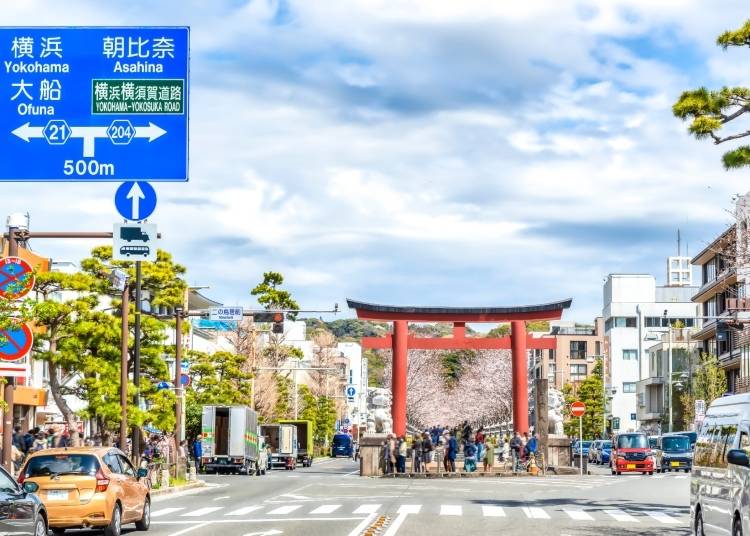
When it comes to choosing the best area to stay in Kamakura, the vicinity around Kamakura Station is a great option to consider.
- Kamakura Station is located in the heart of the town and provides easy access to Tokyo (being around an hour away), making it a great base for exploring both Kamakura and the surrounding area.
- The area around Kamakura Station is bustling with shopping centers, restaurants, and other amenities, making it a convenient location for travelers.
- Given its central location, Kamakura Station is also in close proximity to many temples and shrines, such as Tsurugaoka Hachimangu Shrine, and museums, allowing visitors to experience the rich history and culture of the town.
- Great choice of restaurants and shopping, including the popular Komachi-Dori Street with local products, traditional street food, and tons of gift opportunities, packed in a romantic walk.
Recommended places to stay near Kamakura Station
2. Hase/Yuigahama Beach Area
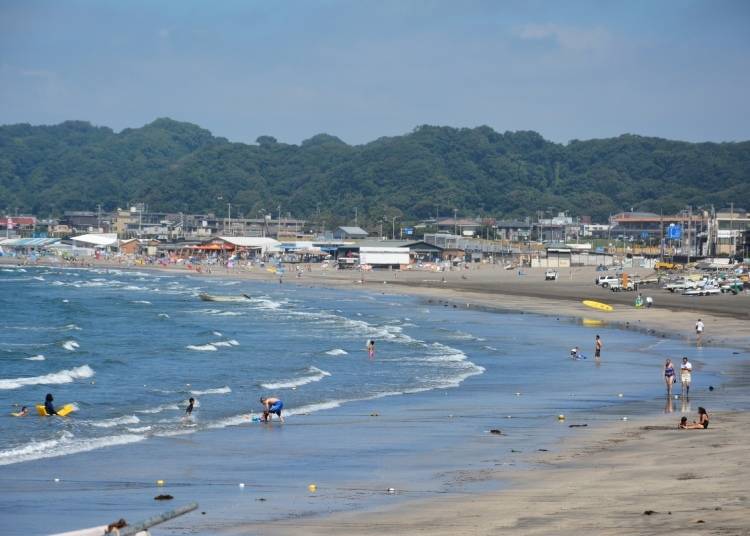
Located just a short distance from Kamakura Station, the Yuigahama Beach area is a popular choice for those looking to enjoy the sun and sand while staying in Kamakura. In addition to its lovely beach, this area offers great food courts, beautiful parks, and scenic tram cars. Plus, it's easy to access other areas of Kamakura and Tokyo. Visitors should note that some areas of the beach may have signs encouraging visitors to cover tattoos.
Meanwhile, the Hase area is a picturesque neighborhood located to the west of Yuigahama, known for its historic temples and shrines. The area is home to some of Kamakura's most famous landmarks, including Hasedera Temple, which is home to very pretty seasonal flowers, and Kotokuin Temple, which houses the iconic Great Buddha of Kamakura. Visitors can also enjoy scenic views of the coast and surrounding hills from the Hase Station area.
- Only a few minutes' walk from a lovely, clean, and lively beach and strip of restaurants
- Easy access to other areas of Kamakura and Tokyo
- Beautiful parks, playgrounds, and sights to explore
- Several properties are within easy walking distance of a scenic tram car, and walking routes are available for a great experience
Recommended places to stay by Yuigahama Beach
3. Enoshima Island Area
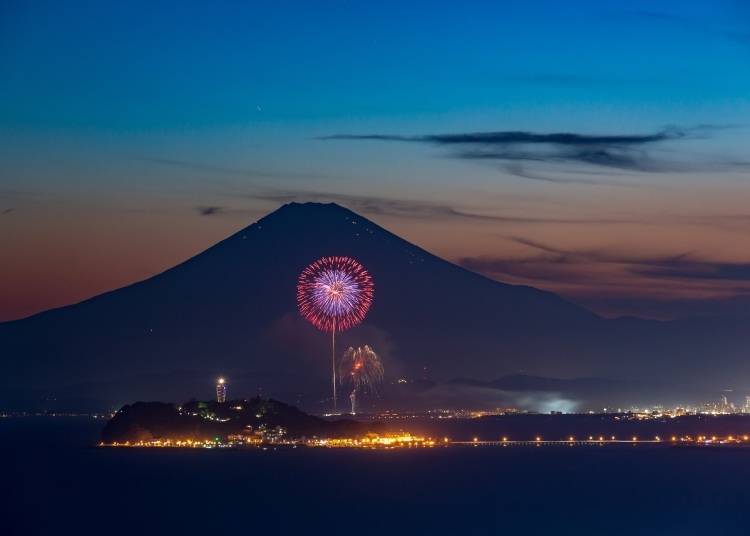
Enoshima boasts picturesque beaches, lush greenery, and rich cultural heritage, making it a must-visit destination for travelers seeking a unique blend of relaxation and adventure. Explore the ancient Enoshima Shrine, indulge in fresh seafood delicacies, and bask in the serene atmosphere of this idyllic getaway.
- While much further west of downtown Kamakura, Enoshima Island is easily accessible by train to Kamakura and offers visitors an ideal location to enjoy the sea and a wide selection of restaurants.
- The area boasts beautiful parks, beaches, an explorable cave, a picturesque lighthouse, and an aquarium, making it a great place to explore.
- The Enoshima Shrine is a must-see attraction, offering breathtaking views and a serene atmosphere.
- The area is easily accessible from Tokyo, making it a convenient location to stay for those looking to explore the surrounding Kamakura or Shonan area.
Recommended places to stay near Enoshima
Types of accommodations in Kamakura
Kamakura offers a wide variety of accommodations to suit different preferences and budgets. For budget-conscious travelers, there are guesthouses and hostels available, while those looking for more space can opt for full rentals like apartments, villas, and beach houses. In addition, visitors can choose from a variety of ryokans and hotels, many of which offer amenities like public and private hot springs, gardens, and more. Whether you're looking for a traditional Japanese experience or modern comforts, Kamakura has something to offer for everyone.
Hotels
Kamakura offers a range of hotels to suit different budgets and preferences, with some located close to major stations and tourist destinations. Many hotels feature traditional Japanese elements like tea rooms, public and private baths, and authentic Japanese cuisine. While most hotels in Kamakura are Western-style, some can be found in more remote areas.
Ryokan
For a truly Japanese-style experience, a ryokan is the way to go. These charming accommodations typically feature tatami-fitted rooms, public and private hot baths, and meticulously prepared traditional Japanese meals. While most ryokan in Kamakura are located near the coast, a few can be found in the central and greater areas of Kamakura.
Full rentals, apartments, villas
Larger groups and families can enjoy the freedom of a full rental, which typically offer more bedrooms, larger spaces, and an independent kitchen. Full rentals in Kamakura range from apartments to luxurious villas with pools and private baths, many of which offer stunning views of the beach.
Hostels and guesthouses
Traveling on a budget doesn't mean sacrificing comfort in Kamakura, thanks to the many hostels and guesthouses available. While these accommodations may not offer private bathrooms, many come with amazing common areas, public hot springs, and access to the beach. Visitors can enjoy comfortable lodgings, great food, and a friendly atmosphere at a fraction of the cost of traditional hotels.
When is the best season to stay in Kamakura?
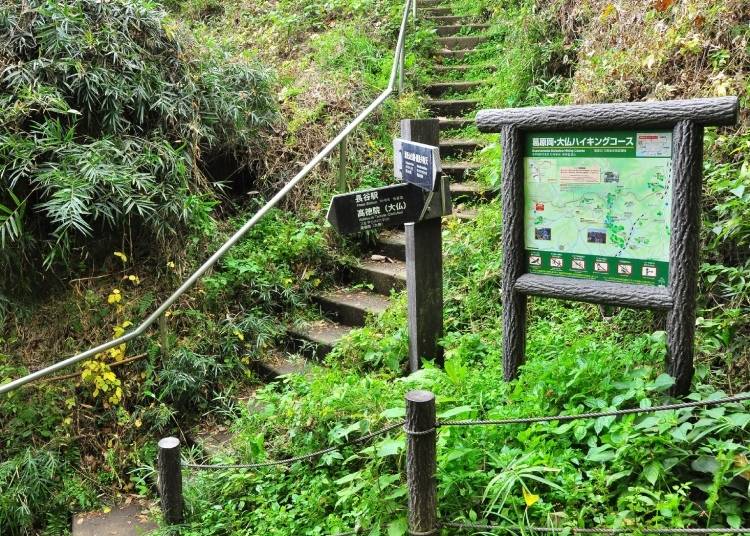
Spring (March - May):
Kamakura is in full bloom during spring with beautiful flowers, including the iconic cherry blossoms. The weather is pleasant, and there is little rain, making it the best season to visit. April hosts the Kamakura Matsuri, a week-long celebration of the city's history. May hosts the Kusajishi Festival, where archers in samurai outfits fire arrows at straw-deer while reciting old poems at Kamakura Shrine.
Summer (June - August):
Summer is peak sightseeing season, as many head to Kamakura's beaches for swimming, surfing, and sunning. In the summer, visitors can also enjoy the city's many hiking trails. On August 10, you can watch the hour-long fireworks display at Yugihama Beach.
Fall (September - November):
Mid-September hosts the famous Tsurugaoka Hachiman-gu Reitaisai, a three-day festival featuring horseback archery. Starting in October, the autumn colors dye the landscape, offering breathtaking views. The lower temperature outside also makes warm onsen baths even more welcoming.
Winter (December - February):
Winter is not the peak season for Kamakura, but if you're looking for a quieter experience, this is a good time to visit. The weather can be chilly, but it's still possible to enjoy the city's natural beauty and historical landmarks.
Kamakura is extremely popular for seasonal flowers
Kamakura is especially busy during certain flower bloom periods, such as the cherry blossom season in spring and hydrangea season in early summer. Visitors can enjoy the stunning blooms of these flowers while exploring Kamakura's temples, shrines, and other historical landmarks.
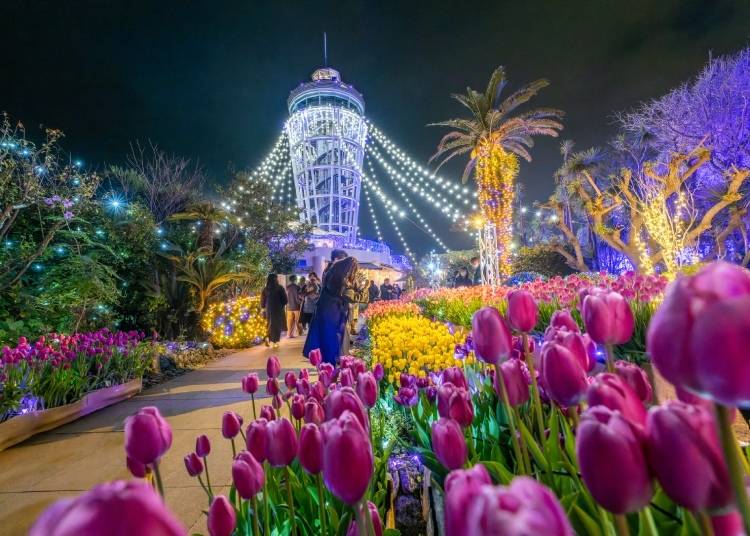
- Spring (March, April, May)
- ・Sakura (cherry blossom) (late March to mid-April)
・Momo (peach) (late March to mid-April)
・Botan (peony) (early April to early May)
・Tsutsuji (azalea) (late April to early May)
・Fuji (wisteria) (late April to mid-May)
・Bara (rose) (mid-May to late June)
・Satsuki (azalea) (late May to early June)
- Summer (June, July, August)
- ・Ajisai (hydrangea) (late May to early July)
・Hana-shoubu (iris) (early to mid-June)
・Hasu (lotus) (mid-July to early August)
- Autumn (September, October, November)
- ・Higanbana (red spider lily) (mid to late September)
・Cosmos (mid to late September to late October)
・Kinmokusei (fragrant olive) (early to mid-October)
・Kouyou (fall foliage) (mid to late November to late December)
Other towns and cities for a comfortable stay near Kamakura
If you can't find accommodations in Kamakura, don't despair! There are plenty of nearby towns and cities that offer great options for a comfortable stay.
Ofuna
Located north of central Kamakura, Ofuna is just a few train stops away from Kamakura Station, about a 6-minute ride on the JR Yokosuka Line. Ofuna is surrounded by nature and dotted with beautiful temples, with its major attraction being the Ofuna Kannon Temple, where a huge white statue of Kannon overlooks the town from a lush hilltop.
Fujisawa
Fujisawa is located east of Kamakura and is easily accessible by train, about a 15-minute ride on the JR Shonan-Shinjuku Line. It is a city worth visiting regardless of where you stay, and one that offers a vast array of accommodations. Enjoy Fujisawa's local cuisine, nightlife and bars, seasonal events, beaches, and the largest commercial city center on the Shonan Coast.
Zushi
Located southeast of Kamakura, Zushi makes for a very good base during your visit to Kamakura. It is easily accessible by train, about a 10-minute ride on the JR Yokosuka Line. Zushi is a coastal town that stretches inland, filled with parks and temples. Like in Kamakura, you'll find accommodations near the beach, or by the main stations, as well as some immersed in greenery.
Hayama
Further south of Zushi is the city of Hayama. This town will appeal mostly to those of you who like spending time by the beach. It is easily accessible by train, about a 10-minute ride on the JR Yokosuka Line. Hayama is home to Isshiki Beach (one of the most popular beaches on that side of the country), as well as many others. And, of course, you'll be able to enjoy local dishes, amazing vistas, parks, and much more.
Yokosuka
Located south of Kamakura, Yokosuka is a naval town with a rich history and beautiful coastal scenery. It is easily accessible by train, about a 25-minute ride on the JR Yokosuka Line. Yokosuka is famous for its battleship museum, Mikasa Park, and Sarushima Island, a small island with a beautiful beach and hiking trails.
Miura
Located south of Zushi and Hayama, Miura is a small coastal town with beautiful beaches and scenic views. It is easily accessible by train, about a 20-minute ride on the JR Yokosuka Line. Miura is famous for its seafood, beaches, and scenic hiking trails, making it a perfect destination for those who love the outdoors and fresh seafood.
- Area
- Category
*Prices and options mentioned are subject to change.
*Unless stated otherwise, all prices include tax.
Popular Tours & Activitiess
Recommended places for you
-

How to Get Don Quijote's Exclusive 2025-2026 Winter Gift (+Tax-Free Savings)
-
Ad

Complete Guide to Ueno's National Museum of Nature and Science, the Perfect Place to Visit on Rainy Days or With Children
-

Japan’s Shinkansen Is About to Change Travel in an Unexpected Way
by: Guest Contributor
-

This Winter, Godzilla Takes Over Haneda Airport
by: Guest Contributor
-

Jujutsu Kaisen Takes Over JR East With a Wrapped Shinkansen This Winter
by: Guest Contributor
-
Ad

(Opening in Jan 2026) 'THE SUMO LIVE RESTAURANT HIRAKUZA GINZA TOKYO!' 5 Exciting Ways to Experience the World of Sumo!
Inspiration for Accommodations
-

Enjoy Mt. Fuji from the Comfort of Your Room! Recommended Ryokan with Mt. Fuji View
-

Stay Near the Cherry Blossoms! Hotels for Cherry Blossom Viewing in Tokyo
-

Family-Friendly Hotels with Free Shuttle to Disneyland: Convenient Access for a Magical Stay
-

Top Ranked Hakone Hotels with Mt. Fuji View: Enjoy Stunning Scenery from Your Private Space
-

Convenient Tokyo Hotels with Airport Shuttle: Ideal for Families and Heavy Luggage
-

Stunning Tokyo Tower View Hotels: Enjoy Spectacular Scenery from Your Private Space
-

Convenient Asakusa Hotels with Kitchens: Ideal for Extended Family Visits
-

Experience Luxury: Hakone's 10 Best Five-Star Accommodations
-

Enjoy Mt. Fuji Autumn Leaves! Top Hotels Near the Popular Autumn Leaves Corridor
-

Experience Hakone Fall Foliage from Your Room with Stunning Views
-

Japan's 2021 Trend! We Tried This Tokyo Hotel's Fun 'Oshikai Plan' (You Won't Believe What's Included!)
by: Naho Jishikyu
-

Ueno Station Area Guide: Fun Ways to Explore Tokyo's Popular Destination (Area Map & Sightseeing Tips)
-

Secrets to Shopping in Japan: Guide to Annual Sales in Japan & Where to Shop
by: Miyu Shimada
-

5 Select Hotels Near Tokyo Dome: Enjoy A Fun Stay After Concerts & Sporting Events (Party Plans & More!)
by: Miyu Shimada
-

Stay Tokyo Plan: Awesome Discounts For Folks Living Around Tokyo!
-

Healthcare in Japan for Tourists: What to Do When You Get Sick or Injured in Japan
- #best ramen tokyo
- #what to buy in ameyoko
- #what to bring to japan
- #new years in tokyo
- #best izakaya shinjuku
- #things to do tokyo
- #japanese nail trends
- #what to do in odaiba
- #onsen tattoo friendly tokyo
- #daiso
- #best sushi ginza
- #japanese convenience store snacks
- #best yakiniku shibuya
- #japanese fashion culture
- #best japanese soft drinks













